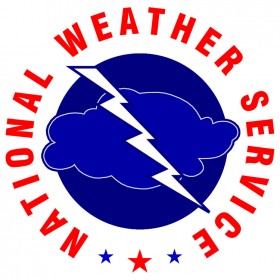 As should be expected of virtually any highly specialized occupation, applicants with an interest in meteorology will need a degree to work for the National Weather Service in almost all cases. The agency is one of the largest and most highly technical of any government agency in the United States, with a strong focus placed on meteorological skills, general scientific knowledge, and strong quantitative skills. A general understanding of public policy and government processes is also an asset in any federal government job. Applicants to the agency should make sure that they have experience fully aligned with expectations for new applicants Luckily, the preferred types of professional and academic experience are clearly listed on the National Weather Service’s website for all to see.
As should be expected of virtually any highly specialized occupation, applicants with an interest in meteorology will need a degree to work for the National Weather Service in almost all cases. The agency is one of the largest and most highly technical of any government agency in the United States, with a strong focus placed on meteorological skills, general scientific knowledge, and strong quantitative skills. A general understanding of public policy and government processes is also an asset in any federal government job. Applicants to the agency should make sure that they have experience fully aligned with expectations for new applicants Luckily, the preferred types of professional and academic experience are clearly listed on the National Weather Service’s website for all to see.
Start with a Relevant, Four-Year Degree in the Field
It’s important to understand that a National Weather Service position is not as easy or as basic as a broadcast meteorology job, a blogging position, or another, less technical job in the weather world. Instead, the National Weather Service is highly analytical, dependent on a deep understanding of meteorological science, and rigorous in terms of its daily responsibilities. Meteorologists at this agency set the daily tone for local forecasts, whether those forecasts concern routine weather patterns, droughts, major winter storms and hurricanes, or natural phenomena that the public wishes to learn more about as it happens.
For these reasons, the National Weather Service requires that all of its applicants for weather and forecasting-related jobs hold a bachelor’s degree in either meteorology, hydrology, or atmospheric science. Applicants who wish to work on the engineering, electrical, or technological side of the business must have a four-year degree in electronics, electrical engineering, computer science, or information technology. As with all federal government jobs, this four-year degree requirement is only the baseline. There are often advantages to having a graduate degree in any of these fields, including a higher salary scale position and an easier time making it through the early recruitment and interview rounds with the National Weather Service.
Credit Requirements: Specific Benchmarks for a Successful Applicant
The National Weather Service goes beyond merely requiring a highly relevant college degree. In fact, its hiring website recommends the best program of study and course selection for students who are still in pursuit of this degree. Typically, the agency requires its applicants to have at least 24 hours of meteorological coursework, but they may select up to 36 hours in this specialization to boost their marketability for an open position. Nine of these semester hours must be in a physical science or quantitative track of study. The rest of the credit cover physical meteorology, weather analysis and prediction, physics, the atmosphere, weather instrumentation, statistics, and differential equations.
The good news for applicants is that most college degree programs in meteorology have been specifically designed to align with the National Weather Service’s rigorous course requirements across various subject areas. This is because most colleges and universities want to ensure that their graduates meet this “gold standard” and qualify for meteorology jobs across both the public and private sector. Since the NWS has the toughest academic standards of any weather-related job, this is a natural way to align the curriculum.
Related Resource: Forensic Meteorology
A Strong Set of Requirements for Future NWS Employees
The National Weather Service offers highly competitive positions in weather forecasting, analysis, and public education. This is considered one of the foremost government responsibilities to the public and, as such, it requires a great deal of highly specific education. As a result, applicants to the agency will need a degree to work for the National Weather Service in virtually every official position.